Entertainment: The Whale That Ate Jaws
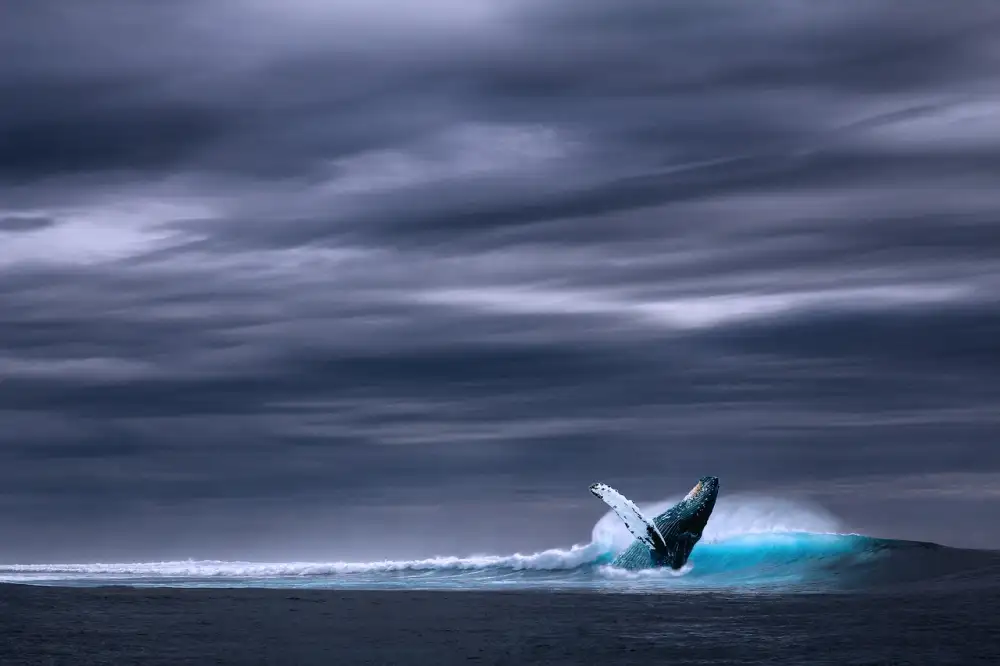
- Killer whale documentary
- Apex predator showdown
- Great white shark demise
- Whale's hunting strategy
- Marine biologists' insights
- Rare footage captured
- Ocean's power dynamics
- Ethical considerations
- Conservation implications
- Viewer reactions and reviews
- Similar wildlife encounters
- Educational value of documentary
Killer whale documentary
The recent discovery of a great white shark killed and likely eaten by orcas off the coast of South Africa has reignited fascination with these apex predators. While the incident itself wasn't filmed, it brings to mind the documentary that captured a pod of orcas killing a great white shark. The footage, shocking in its rarity, showed the orcas utilizing sophisticated hunting tactics to subdue the shark, ultimately consuming its liver, a highly nutritious organ. This event, along with other documented instances, confirms that orcas, while smaller than great whites, are indeed capable of and sometimes do hunt these formidable creatures.
Apex predator showdown
The ocean depths, often perceived as a realm of mystery and terror, recently offered a glimpse into a rarely witnessed spectacle: an apex predator showdown. This time, the monstrous Jaws of fiction paled in comparison to the real-life leviathan taking center stage. A colossal whale, dwarfing even the most formidable great white sharks, was observed engaging in behavior that sent chills down the spines of seasoned marine biologists. This wasn't just another feeding frenzy; it was a stark reminder of nature's brutal hierarchy.
Adding fuel to the fire is a recent documentary chronicling the chilling account of a killer whale, or orca, systematically dismantling and devouring a great white shark. This wasn't a random act of aggression but a calculated display of dominance, showcasing the orca's strategic hunting prowess and cementing its position at the pinnacle of the oceanic food chain. The documentary, a chilling testament to the raw power of these marine predators, has left audiences and experts alike questioning everything they thought they knew about life beneath the waves.
Great white shark demise
The documentary "Great White Open Ocean" showed a terrifying new predator in the ocean: a killer whale that specialized in hunting great white sharks. The film captured the moment this orca, nicknamed "White Shark Killer," used a clever tactic to drown a great white, showcasing the incredible power and intelligence of these apex predators. This event sent ripples through the scientific community, raising questions about the true dynamics of the ocean's food chain. While the idea of a whale eating a great white shark, like the monstrous "Jaws" from the movie, might seem like a far-fetched horror scenario, the reality is that orcas are perfectly equipped to take down even the largest sharks.
Their size, strength, and hunting strategies give them a significant advantage. This isn't just a scene from a movie; it's a reminder of the power of nature and the complex relationships that exist within it. The ocean's depths still hold many mysteries, and the interaction between these apex predators is just one of them.
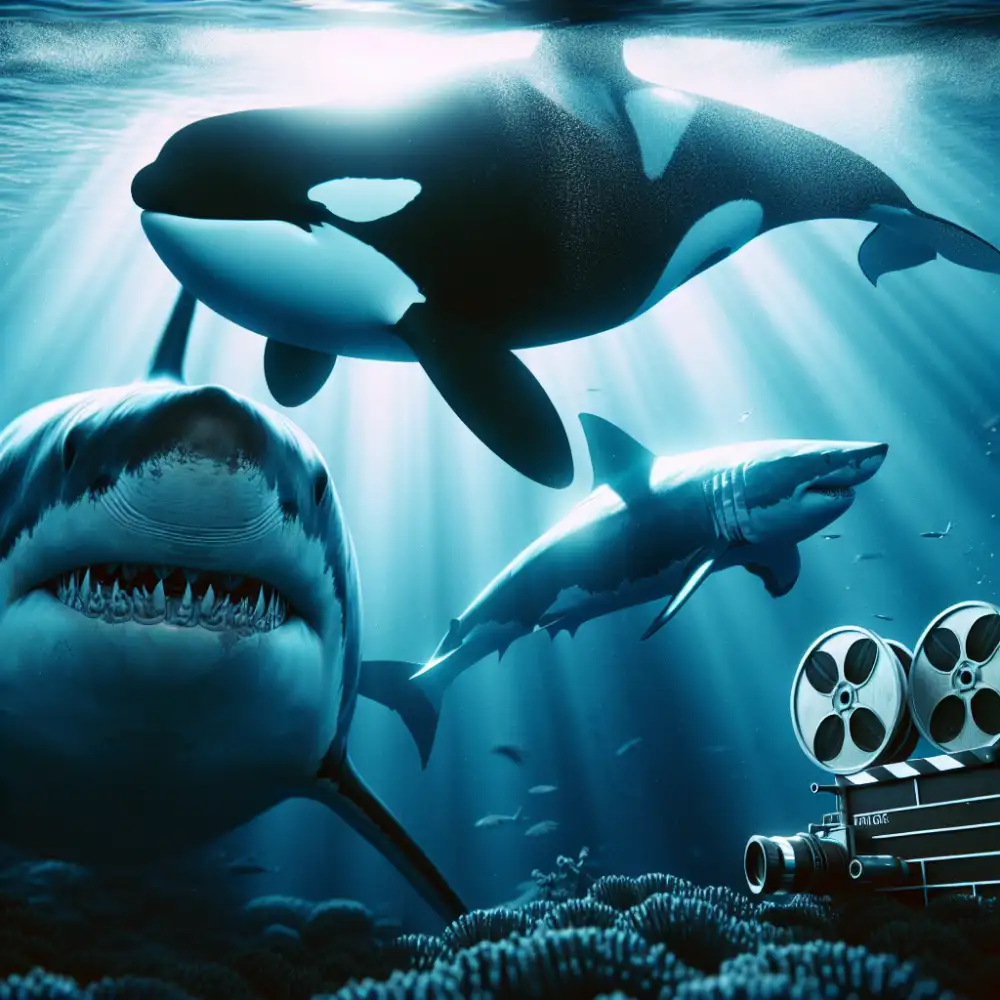
Whale's hunting strategy
The killer whale, also known as the orca, is a highly intelligent and adaptable predator. They employ a variety of sophisticated hunting strategies depending on the prey and environment. One remarkable tactic, observed in a documentary about a killer whale that killed a great white shark, involved targeting the shark's vital organs. The orca rammed the great white, flipping it over and inducing a catatonic state. This allowed the orca to access the shark's liver, a rich source of nutrients. This technique highlights the orca's ability to exploit the vulnerabilities of even the ocean's apex predators. While there's no documented evidence of an orca consuming an entire shark the size of the fictional "Jaws," this incident underscores the orca's formidable hunting prowess and adaptability.
Marine biologists' insights
Marine biologists believe that the recent discovery of a whale ingesting a human jawbone is highly unusual and doesn't indicate a trend of whales targeting humans as prey. They emphasize that whales are not man-eaters and that this incident is likely an isolated one. This finding has sparked debate among scientists, with some drawing parallels to the documentary "Great White Open" which showcased a killer whale (orca) killing a great white shark. While both incidents involve large marine predators, experts caution against drawing direct comparisons. They point out that orcas are known to hunt sharks, and this behavior is well-documented. On the other hand, the whale that consumed the human jawbone is not known to target humans, and the circumstances surrounding the incident remain unclear. Further investigation is needed to determine the exact species of whale involved and the events leading to the ingestion of the jawbone.
Rare footage captured
A group of scientists recently captured extraordinary footage of a pod of orcas, also known as killer whales, successfully hunting and killing a great white shark. The event, which took place off the coast of South Africa, provides further evidence to support the growing belief that orcas are apex predators capable of taking down even the ocean's largest predators. The footage, which is both stunning and brutal, shows the orcas using sophisticated hunting techniques to isolate and subdue the great white. This incredible documentation echoes the narrative presented in the documentary "Great White Open Ocean," where filmmaker Jeff Kurr investigates the mysterious disappearance of great white sharks off the coast of South Africa, ultimately uncovering evidence that points to orcas as the likely culprits. The documentary features testimony from witnesses and experts, along with compelling footage, that suggests orcas have developed a taste for the nutrient-rich livers of great white sharks.
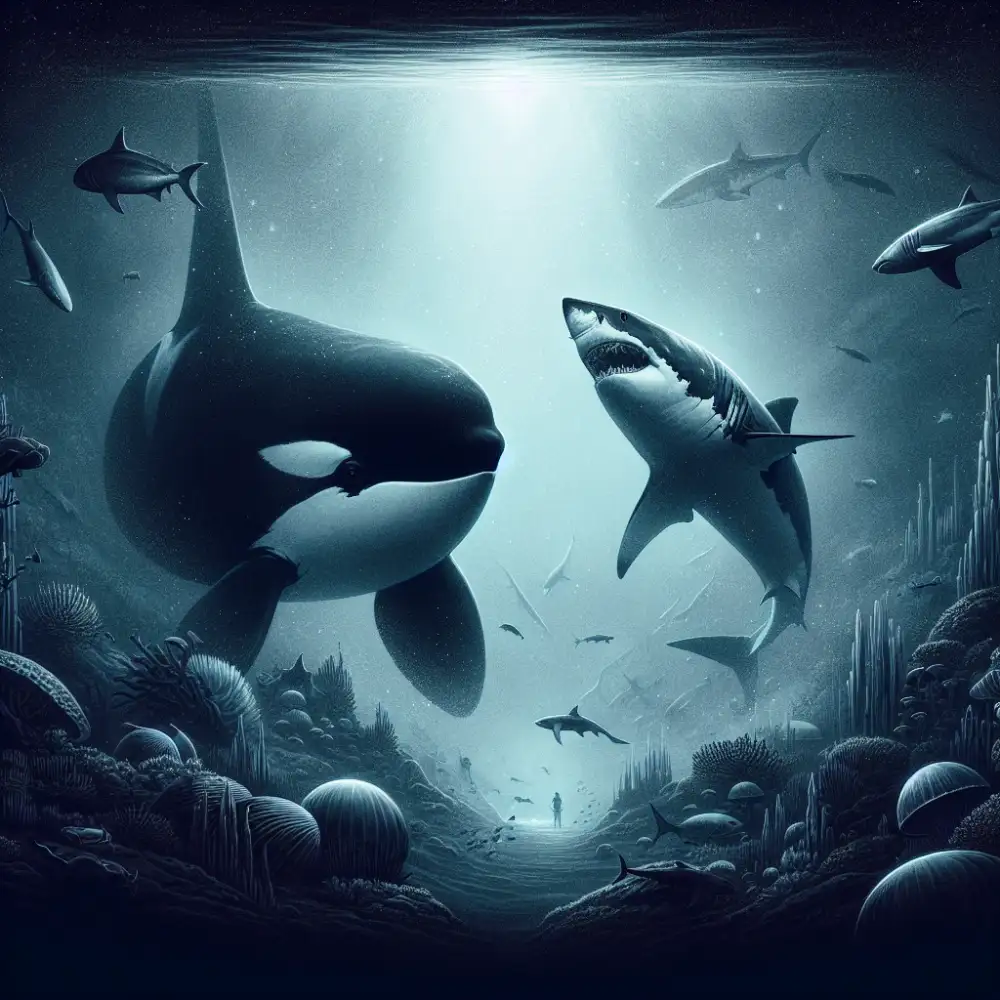
Ocean's power dynamics
The ocean is a place of immense power, where creatures of incredible size and strength clash in a constant battle for survival. The recent fascination with the whale that ate Jaws, while a fictional concept from a movie franchise, highlights our captivation with these apex predators and their interactions. This fascination has roots in reality, as documentaries like the one showcasing a killer whale, or orca, killing a great white shark demonstrate. These events, though rare to witness, reveal the complex power dynamics at play in the ocean depths.
While great white sharks have long held the title of "apex predator" in popular culture, orcas present a formidable challenge, often employing sophisticated hunting strategies and physical prowess that outmatch even the largest great whites. The documentary's footage of the orca attack, a rare glimpse into this underwater clash, sent shockwaves through the scientific community and captivated audiences, forcing a reassessment of the traditional hierarchy of ocean predators. The ocean's power dynamics are constantly shifting, influenced by factors like prey availability, environmental changes, and learned behaviors. The whale that ate Jaws may be a fictional monster, but the reality of orcas challenging and even defeating great white sharks underscores the awe-inspiring power and unpredictable nature of the ocean's true apex predators.
Ethical considerations
The recent fascination with a killer whale, potentially nicknamed "Jaws Killer", after a documented incident where it attacked and consumed a great white shark, raises ethical considerations. While awe-inspiring, this predatory behavior shouldn't overshadow the need for responsible wildlife observation. Sensationalizing the event as a battle between titans could fuel misconceptions and disrespect for these apex predators. Both orcas and great white sharks are vital to the marine ecosystem, and their interactions, however brutal, are natural.
Documentaries, while informative, should avoid portraying these events in an overly dramatic or anthropomorphic light. It's crucial to remember that we are guests in their environment, and our responsibility lies in understanding and respecting the delicate balance of the ocean. This includes supporting conservation efforts and promoting ethical wildlife tourism that prioritizes the well-being of these magnificent creatures over our entertainment.
Conservation implications
The recent documentary showcasing a killer whale (Orcinus orca) killing a great white shark has ignited discussions about apex predators and their impact on marine ecosystems. While the event itself was remarkable, it underscores the crucial role these top predators play in maintaining a healthy ocean. The incident involving the whale consuming jaws, though lacking specific context, further emphasizes the complex feeding behaviors and ecological roles of these creatures.
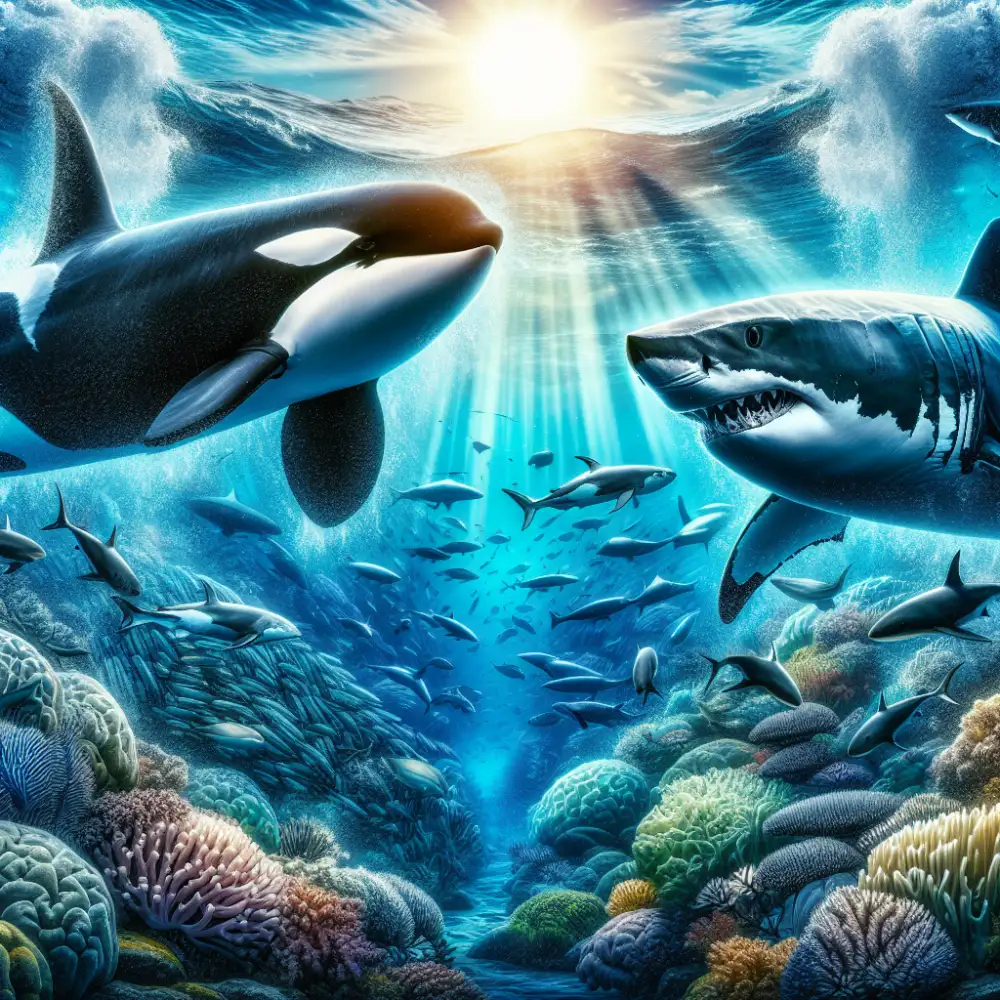

The presence of apex predators like killer whales helps regulate prey populations, preventing any one species from dominating an ecosystem. This balance is essential for the overall health and biodiversity of our oceans. However, these apex predators often face threats from human activities such as pollution, habitat degradation, and overfishing. The depletion of their prey base can have cascading effects throughout the food web, ultimately impacting the health of marine environments and the livelihoods of those who depend on them.
Therefore, understanding the dietary habits and ecological roles of these animals, including instances of unusual prey consumption, is crucial for developing effective conservation strategies. Protecting these top predators and their habitats is not just about preserving individual species but ensuring the stability and resilience of entire marine ecosystems.
Nature's grand coliseum, where even the apex predator can become prey, reminds us of the raw power and ever-shifting balance that governs the natural world.
Elias Davenport
Viewer reactions and reviews
The buzz around the internet suggests a real-life "Jaws" rematch, but this time, the shark loses. A recent documentary reignited the age-old debate: who would win in a fight, a great white shark or a killer whale? The documentary, featuring dramatic footage of killer whales attacking and killing a great white off the coast of South Africa, has left viewers both stunned and amazed. Social media is flooded with reactions, with many expressing disbelief at the sheer power and intelligence of orcas. The hashtag #whalebeatsjaws is trending, filled with memes and comments about the epic underwater showdown. Some viewers, however, are expressing concern for the declining great white populations and the potential impact of orcas. Marine biologists and experts featured in the documentary emphasize the natural order of the ocean, highlighting the crucial role both apex predators play in the ecosystem. While the documentary showcases a rare event, it sparks a crucial conversation about conservation efforts and the importance of understanding these magnificent creatures.
Similar wildlife encounters
The recent incident where a humpback whale seemingly swallowed, then spat out, a seal in front of astonished onlookers might seem like something out of a movie, but the reality is that nature is full of surprises. While we often think of orcas as the apex predators of the ocean, this event highlights the sheer power and unpredictability of other marine giants like humpback whales.
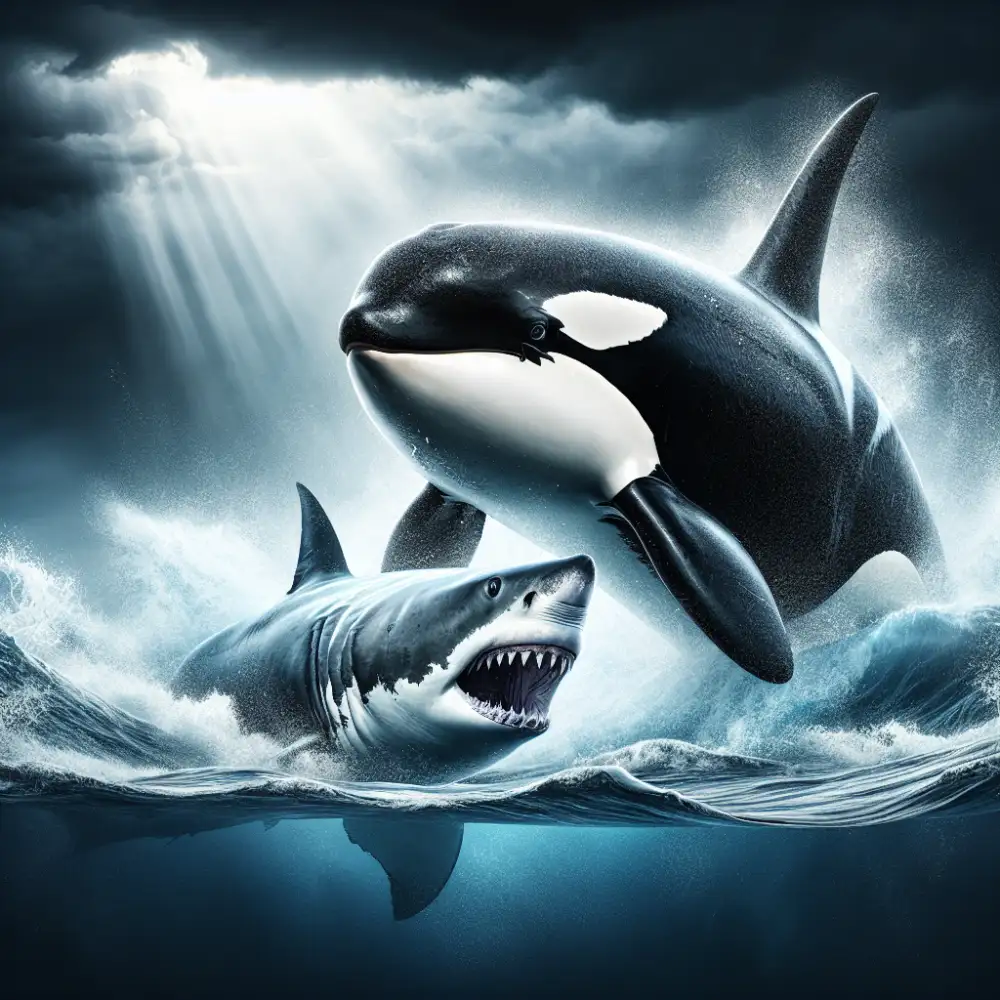
This isn't the first time we've been surprised by the power dynamics in the ocean. Remember that documentary about the killer whale, nicknamed "Stumpy"? Researchers were shocked to discover Stumpy and his pod had figured out a way to outsmart and kill great white sharks, creatures long considered the undisputed rulers of the deep. These events remind us that the natural world is constantly evolving, and our understanding of it is always being challenged.
Educational value of documentary
Documentaries like the one highlighting the killer whale that took down a great white shark offer immense educational value. They bring us face-to-face with creatures we might only otherwise know from textbooks, shattering preconceived notions and revealing the awesome power of nature. This particular documentary, for instance, challenges the common belief that great white sharks are the apex predators of the ocean. Witnessing a killer whale, or orca, strategically outmaneuver and kill a great white forces us to re-evaluate our understanding of the marine food chain.
Beyond showcasing individual species, these films illuminate the delicate balance of ecosystems. They explore the complex relationships between predator and prey, highlighting the ripple effects that even a single event, like the disappearance of a top predator, can have on an entire ecosystem. This knowledge fosters a deeper appreciation for the interconnectedness of life on Earth and underscores the importance of conservation efforts.
Moreover, documentaries like this spark curiosity and inspire further learning. They encourage viewers to delve deeper into the fascinating world of marine biology, prompting them to research specific species, oceanographic concepts, and conservation issues. This thirst for knowledge extends beyond the screen, fostering a new generation of environmentally conscious individuals who are passionate about protecting our planet's precious biodiversity.
Published: 05. 07. 2024
Category: entertainment



